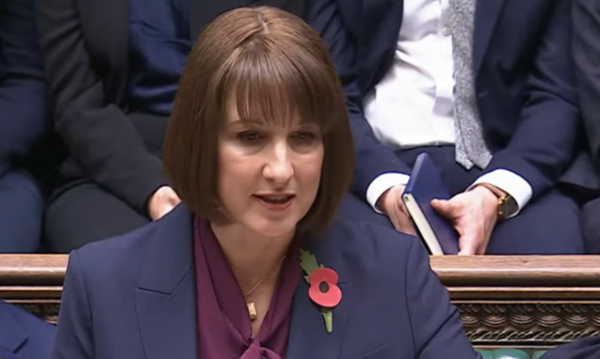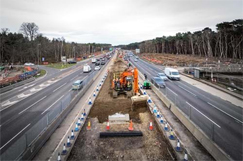Chancellor Rachel Reeves has announced extra transport cash for regional mayors alongside incremental extensions to existing rail schemes, but departmental spending remains tight.
The Budget provides an additional £200m for City Region Sustainable Transport Settlements, (CRSTS) bringing local transport spending for Metro Mayors in 2025-26 to £1.3bn.
The Treasury said the CRSTS was funding projects such as Liverpool's Baltic Railway Station, the renewal of Sheffield's Supertram system and the continued development of West Yorkshire Mass Transit.
It also said the Government is also announcing over £650m for improving transport in towns, villages, and rural areas alongside our city regions, but did not describe this as new spending.
There is also £485m for TFL's capital renewals programme in 2025-26, which includes funding for rolling stock on the Piccadilly and Elizabeth Lines.
The Budget also reiterated over £1bn in 2025-26 towards bus services. The Government is establishing a new fare cap, which will run from January 2025 to December 2025 at the higher rate of £3.
'This will allow the government to develop a more sustainable model of government support for the bus sector that is better value for taxpayers and bus passengers,' officials said.
Jason Prince, director of the Urban Transport Group, said: ‘We look forward to working with Government on the finer details of specific funding arrangements, and to lock in a longer-term revenue and capital funding settlement for local transport at the Spending Review.'
On rail, the Treasury said it was confirming funding to tunnel from Old Oak Common to Euston to ensure HS2 trains terminate in central London, ‘catalysing private investment into the station and local area'.
It added that it is securing delivery of the Transpennine Route Upgrade and ‘maintaining momentum on Northern Powerhouse Rail by progressing planning and design works to support future delivery', with further details ‘in due course'.
It is also ‘committing to East West Rail between Oxford, Milton Keynes and Cambridge, including funding to accelerate delivery of the Marston Vale Line, ensuring services will run between Oxford and Bedford from 2030'.
However, the Treasury confirmed a 4.6% increase in regulated rail fares from March 2025 and said the Government will also agree a £5 increase to the price of rail cards, except the disabled person's rail card.
Overall, the official Treasury Budget document showed that the DfT's department expenditure limit (DEL) will be £30bn next year, up from £28.8bn in 2024-25 but the same as in 2023-24 and therefore down 2.5% in real terms over the period.
The DfT's resource (revenue) DEL will be £8.2bn next year, unchanged on this year and a real terms fall of 0.7% compared to 2023-24.
The Treasury said the department's growth rate is negative ‘due to the reduction to the rail services subsidy as passenger numbers continue to recover post-pandemic'.
Similarly, while the DfT's Capital DEL will rise from £20.6bn this year to £22.1bn, this will represent a fall of 3.1% compared to £22.1bn last year.
The Treasury said this reflected temporary funding increases in 2023-24, including one-off additional funding for HS2, temporary uplifts to local roads maintenance funding and funding for Transport for London's (TfL) extraordinary funding settlement.
































